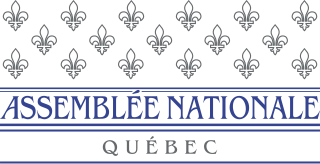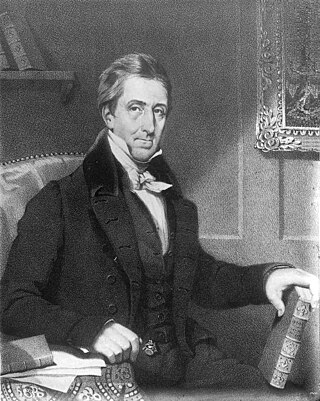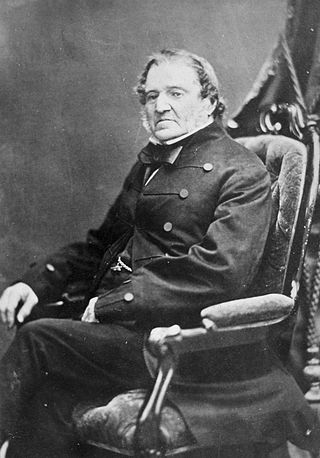Related Research Articles

The National Assembly of Quebec is the legislative body of the province of Quebec in Canada. Legislators are called MNAs. The King in Right of Quebec, represented by the lieutenant governor of Quebec, and the National Assembly compose the Legislature of Quebec, which operates in a fashion similar to those of other Westminster-style parliamentary systems. The assembly has 125 members elected first past the post from single-member districts.

This section of the Timeline of Quebec history concerns the events in British North America relating to what is the present day province of Quebec, Canada between the time of the Constitutional Act of 1791 and the Act of Union 1840.

Denis-Benjamin Viger was a 19th-century politician, lawyer, and newspaper publisher in Lower Canada, who served as joint premier of the Province of Canada for over two years. A leader in the Patriote movement, he was a strong French-Canadian nationalist, but a social conservative in terms of the seigneurial system and the position of the Catholic church in Lower Canada.
Viger may refer to:
The 2nd Parliament of the Province of Canada was summoned in 1844, following the general elections for the Legislative Assembly in October 1844. It first met on November 28, 1844. It was dissolved in December 1847. All sessions were held at Montreal, Canada East.
Denis-Benjamin Papineau was joint premier of the Province of Canada for Canada East from 1846 to 1848. His joint premiers for Canada West during this period were William Henry Draper and Henry Sherwood.
Louis Labrèche-Viger was a Quebec businessman, journalist and political figure.

Denis-Émery Papineau was a Quebec notary and political figure.
Jacob De Witt was a businessman, banker and political figure in Lower Canada and Canada East, Province of Canada. Beginning in the hardware trade, he expanded into steamship transportation on the River St. Lawrence and then banking. He was elected to the Legislative Assembly of Lower Canada and generally supported the Parti patriote, but did not participate in the Lower Canada Rebellion of 1837. After the union of Lower Canada and Upper Canada into the Province of Canada, he was elected to the new Legislative Assembly. He initially supported the reform measures of Louis-Hippolyte LaFontaine, but gradually became more radical, ending his political career as member of the Parti rouge and calling for the voluntary annexation of Canada to the United States. He continued in business, particularly banking, until his death in 1859.

Louis-Michel Viger was a lawyer, banker, businessman, seigneur and political figure in Lower Canada, and then in Canada East in the Province of Canada.

Frédéric-Auguste Quesnel,, was a lawyer, businessman and politician in Lower Canada. He was a member of the Legislative Assembly and the Executive Council of Lower Canada. Following the union of the Canadas, he was elected to the Legislative Assembly of the Province of Canada and later was appointed to the Legislative Council. Throughout his career he was a political moderate, seeking greater political power for French-Canadians under British rule, but also supporting the British connection generally. Condemned by the Patriotes as a vendu ("sell-out") in the Lower Canada Rebellion, in 1860 he was elected President of the Saint-Jean-Baptiste Society of Montreal.
Bonaventure Panet was a businessman and politician in Lower Canada.
Benjamin-Hyacinthe-Martin Cherrier was a surveyor and political figure in Lower Canada.
Joseph Viger was a businessman and political figure in Lower Canada.

Côme-Séraphin Cherrier was a lawyer and political figure in Lower Canada.
Yves Bérubé was a Quebec engineer, politician and multiple-time minister.
Jacques Viger was a political figure in Lower Canada.
Charles-Ovide Perrault was a lawyer and political figure in Lower Canada. He represented Vaudreuil in the Legislative Assembly of Lower Canada from 1834 to 1837.
Séraphin Cherrier was a merchant and political figure in Lower Canada. He represented Richelieu in the Legislative Assembly of Lower Canada from 1815 to 1820.
References
- ↑ "Denis VIGER". Assemblée nationale du Québec. Assemblée nationale du Québec. Retrieved 30 October 2013.